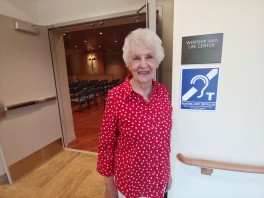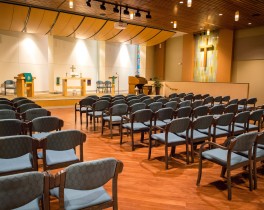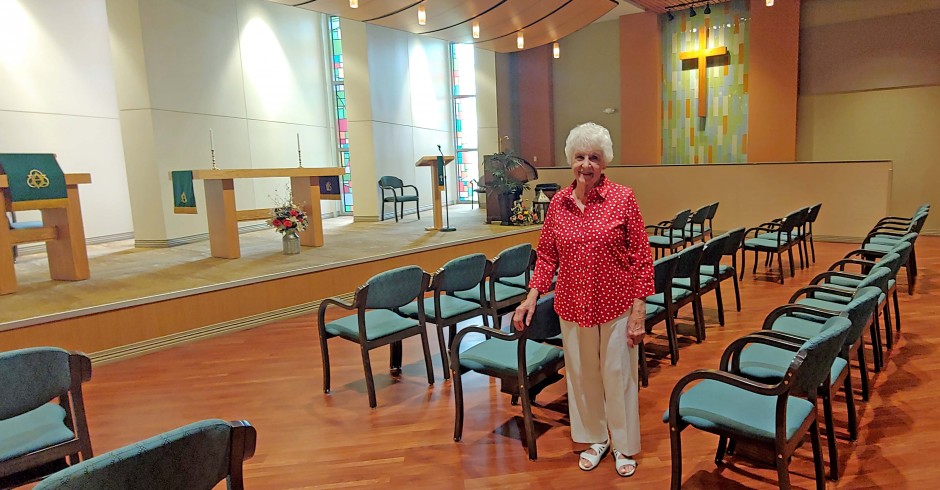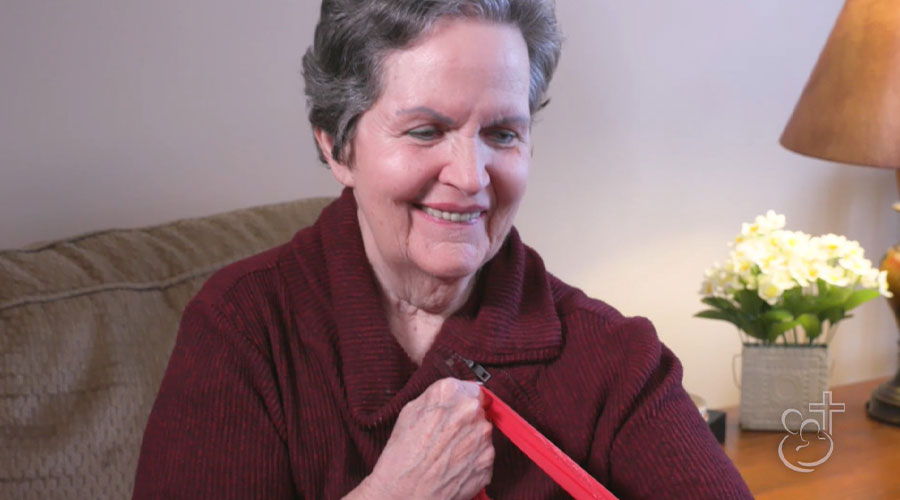This story is part of a series presented by the Good Samaritan Society addressing hearing loss and its effects on well-being.
When Mary Miller-Cook experienced a system that sends sound from microphones or speakers directly to hearing aids, she knew it had to be a part of the new Worship and Life Center at Good Samaritan Society – Cedar Lake Village.
A new sense of purpose

Mary, a resident of Good Samaritan Society – Cedar Lake Village, lost all of her hearing in 1976 at the age of 46. She began losing her hearing in her mid-20s from otosclerosis, an inherited progressive disease that causes abnormal bone growth in the cochlear area in the ears.
At age 35, Mary quit her job as a nurse when hearing aids could no longer remedy her profound hearing loss. She thought her career of serving others had ended.
In 1979, she became a candidate for a cochlear implant, a device implanted into the cochlea, a portion of the inner ear. She explains that a cochlear implant works to bypass the normal hearing process by replacing it with electrical signals in the cochlea, directly stimulating the auditory nerve.
This ability to hear again has shaped Mary’s life as an advocate.
In a sense, I didn’t really give up my nursing career because I became a part of that cochlear implant program and that’s been my mission through life: to help people hear." – Mary Miller-Cook, Good Samaritan Society – Cedar Lake Village resident
Adding a loop system at Cedar Lake Village
In the early 2000s, Mary and her husband, Eldon, who also had a cochlear implant, learned about a special type of sound system known as an Audio Induction Loop.
The loop system uses an electromagnetic cable built into a room to provide a magnetic wireless signal. To connect to the loop, participants switch on the T (telecoil) setting on their hearing devices.
Using the system provides better clarity of sound, allowing participants to engage more fully with guest speakers, worship services, music performances and more.
[My husband and I] went to a cochlear implant meeting in San Diego, and we couldn’t believe that we could sit down and turn our telecoil on and be able to hear everything." – Mary Miller-Cook

Shortly after discussions began at Cedar Lake Village to build a new worship and life center, Mary said, “We really need to think about a loop system because so many people our age have hearing loss and already have a telecoil in their hearing aids."
To have a loop system included in the project, Mary and Eldon contributed funds. It was the first time many residents and community members had used one, including a doctor with hearing loss.
“He was just amazed,” she says. “Most people with cochlear implants don’t use the loop system because most places in the U.S. don’t have them – but we’re getting there."
Helping others with hearing impairments know what options, technology and support is available has become the most rewarding part of her advocacy.
My life has been really fulfilling, and because of my hearing loss, I have been able to help other people." – Mary Miller-Cook



